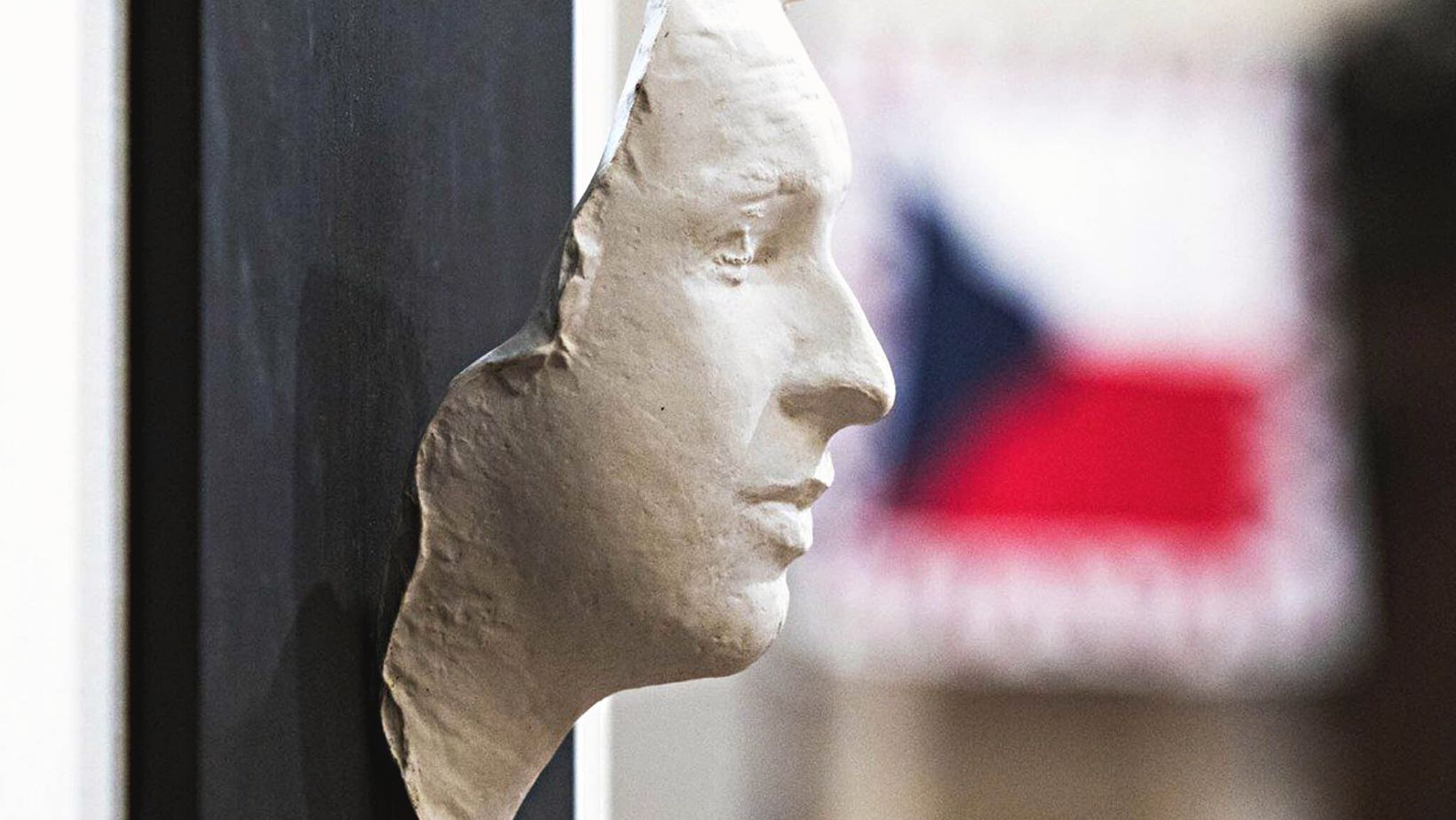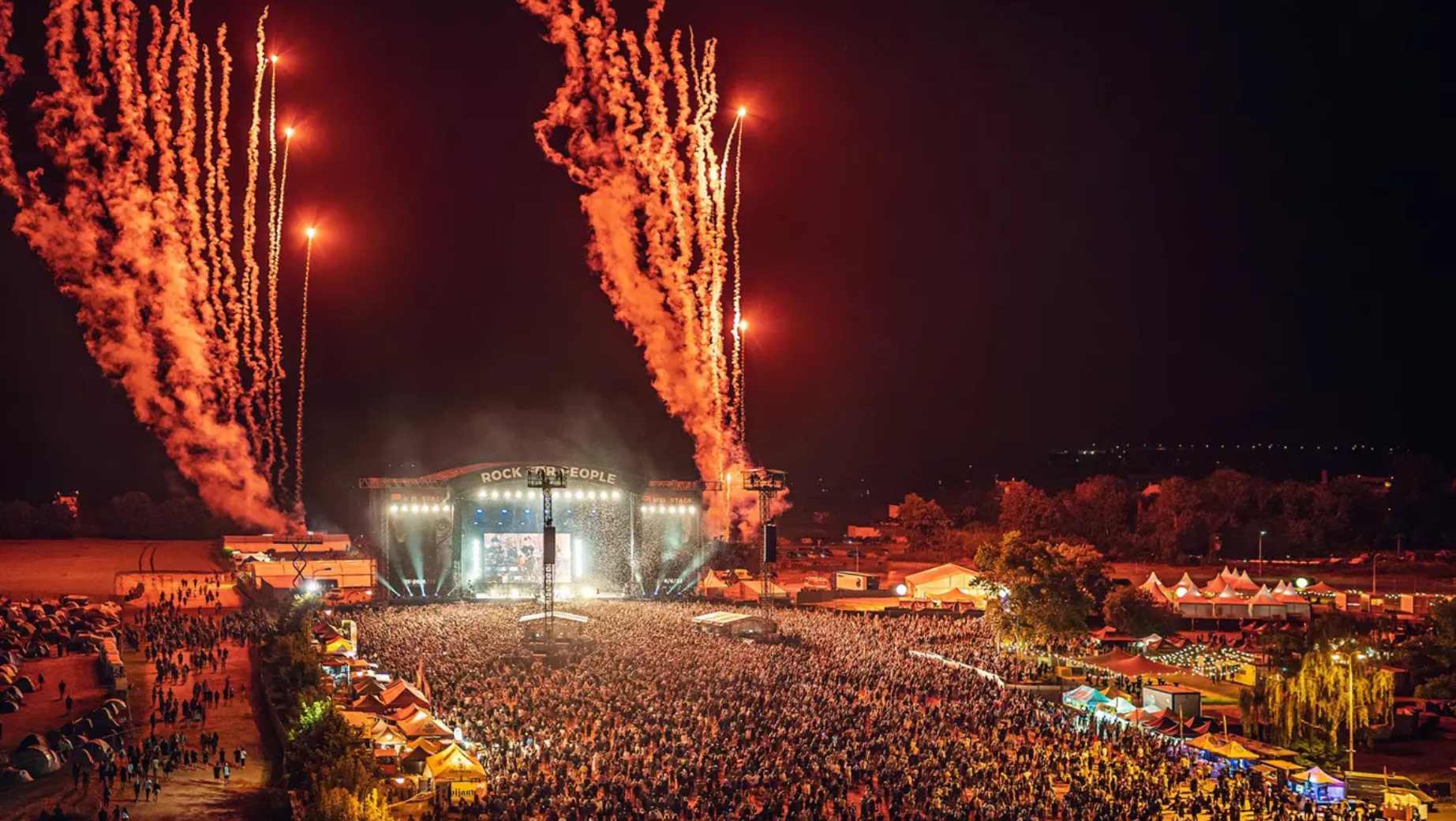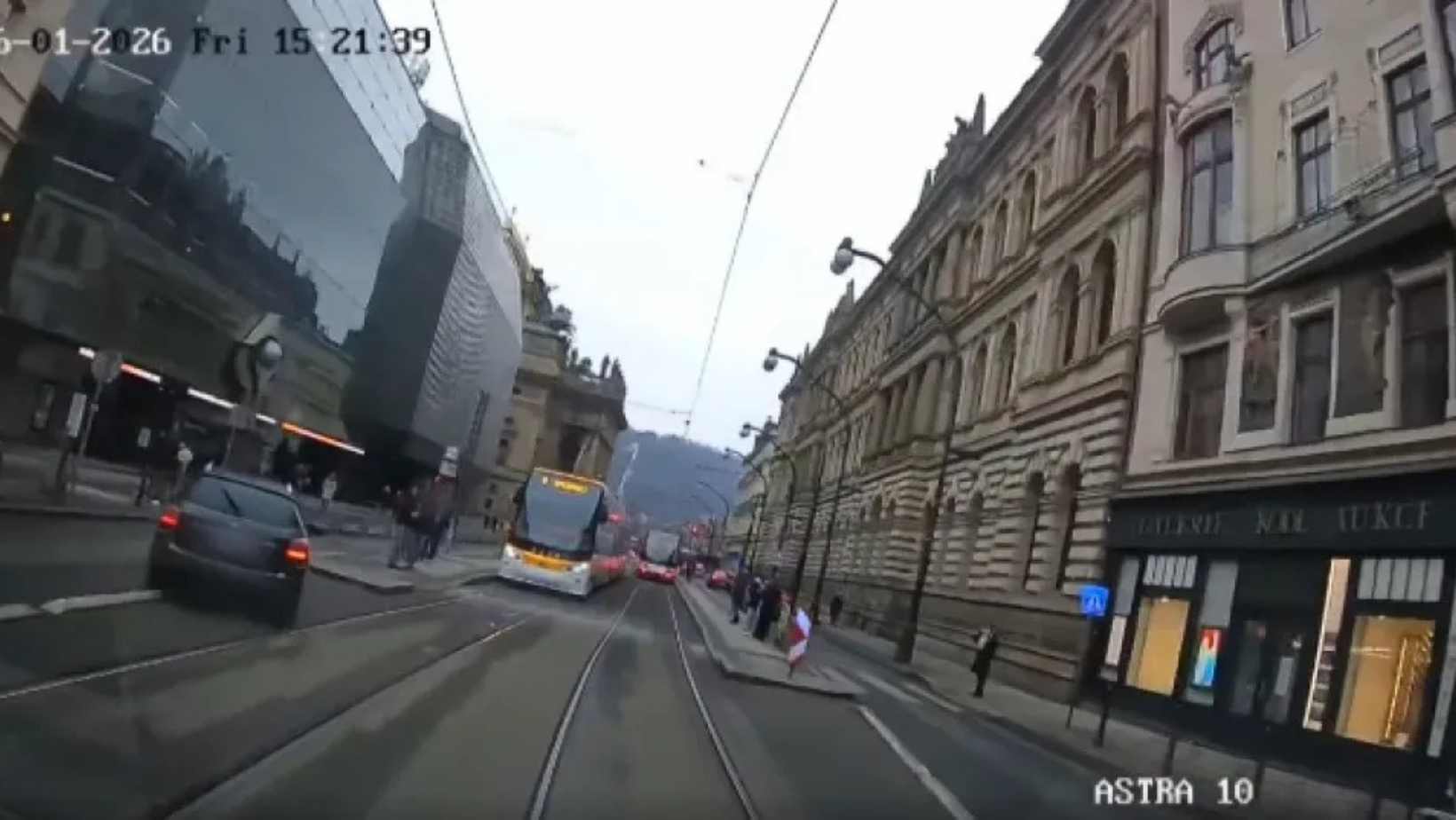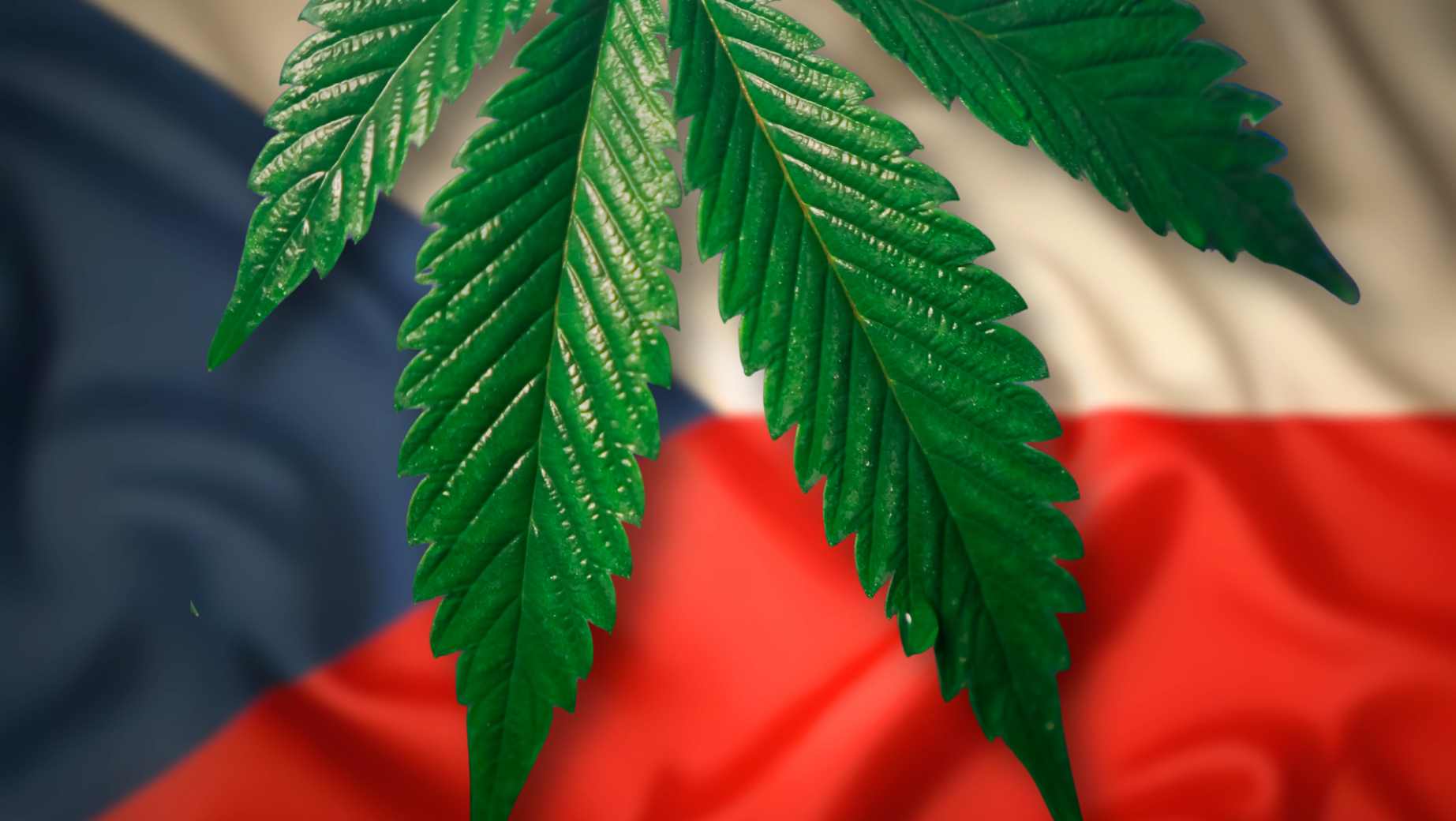Fifty-three years ago this week, Jan Palach united his nation by burning himself to death.
Jan Palach’s self-immolation in Prague’s Wenceslas Square was arguably the most dramatic suicide of the 20th century.
His death brought hundreds of thousands of people into the streets. A quiet student of philosophy with no history of political activism, Palach burned himself alive five months after Soviet tanks had rolled into Czechoslovakia to end a swelling reform movement.
Jan Palach died on January 19, 1969, three days after setting himself alight. Protesters and mourners went to the Karolinum, the seat of Charles University’s rectorate, to bow their heads in front of Palach’s coffin.
Later, his coffin was taken to Olsany cemetery, where at least 200,000 mourners attended the funeral on January 25.
“His self-immolation was not a form of protest at all,” said Lukasz Kaminski, a historian at the University of Wroclaw, who specializes in Soviet-era Central Europe. Instead, Kaminski said, Palach’s “gruesome death was intended to encourage the Czech and Slovak people to resist the occupation.”
It did. Following Palach’s self-immolation, many Czechs and Slovaks went on hunger strike; others took to the streets. They insisted that Palach’s calls — expressed in his farewell letters — to abolish censorship and stop the dissemination of the Soviet propaganda publication Zpravy should be heeded.
Palach was upset by the way his compatriots seemed to have accepted the occupation without resistance and he wanted to shake them up.
His act was modeled on public self-immolations by Buddhist monks in Saigon protesting at the Vietnam war. It was later copied by a wave of Indian students who set themselves alight in 1990 in protest at changes in quota systems for entry into university and the civil service.
In Britain in 1993, Graham Bamford, a 48-year-old former haulage contractor, burned himself to death outside the House of Commons to protest at the horrors of Bosnia.
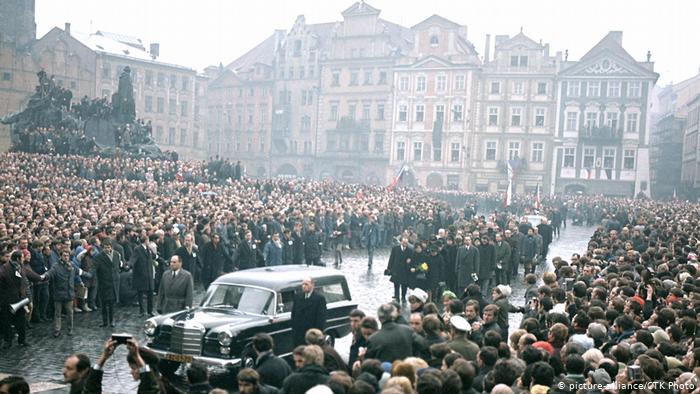
At least 200,000 protesters turned out for Palach’s funeral.
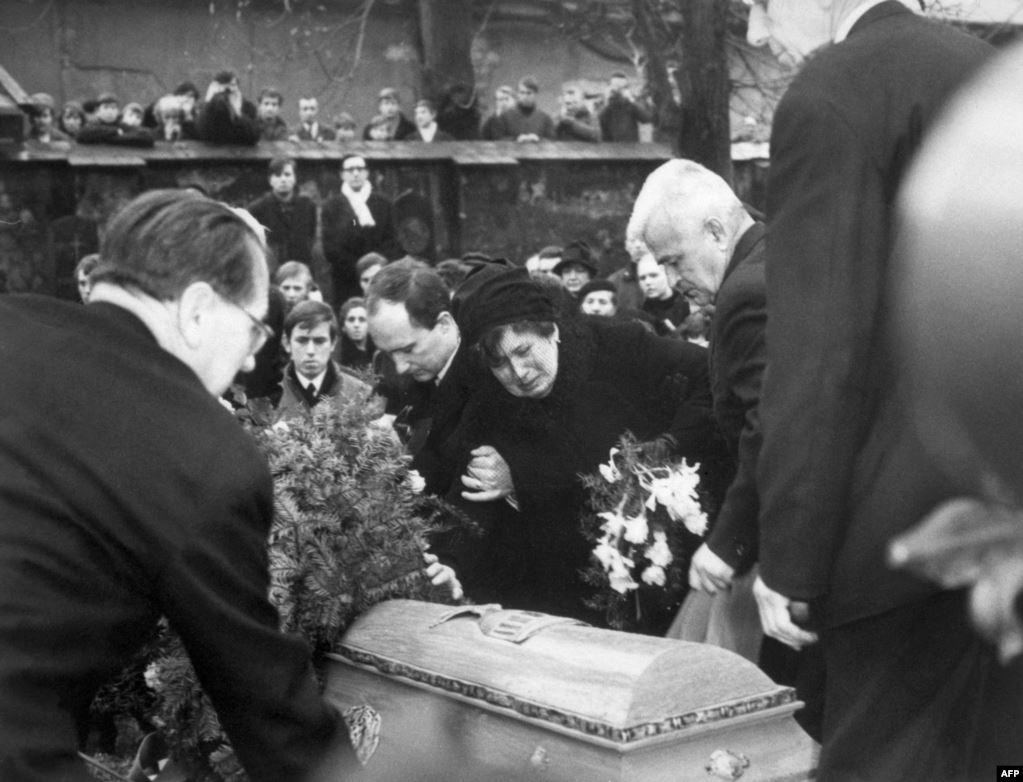
Palach’s grieving mother, Libuse Palachova, is supported by her son Jiri during Jan’s funeral in Prague.
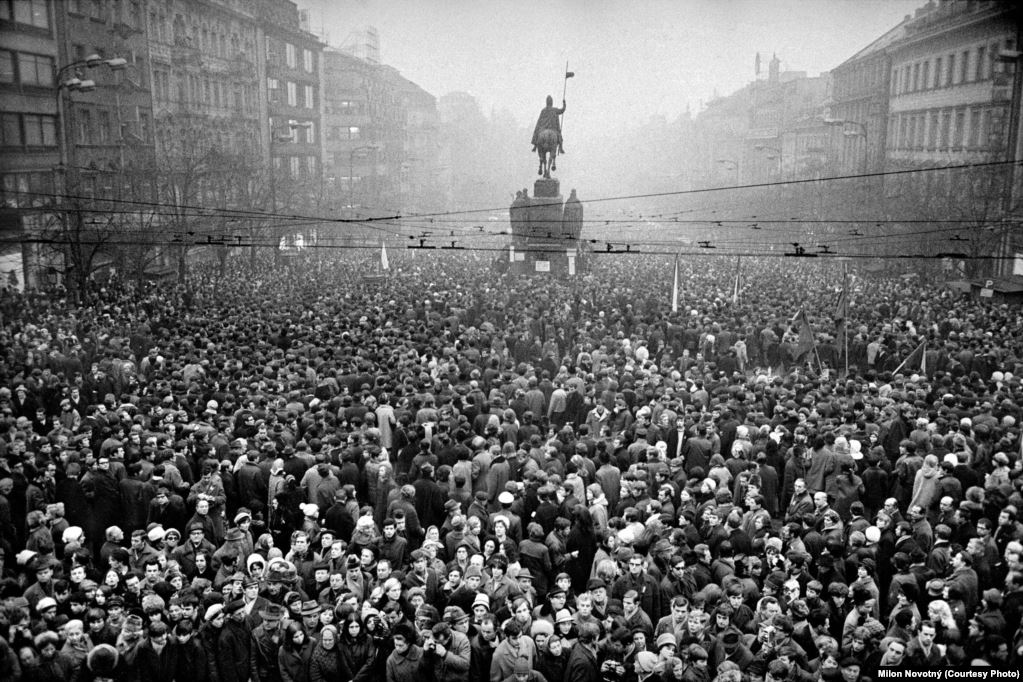
Thousands gather on Prague’s Wenceslas Square on the day of Palach’s funeral.
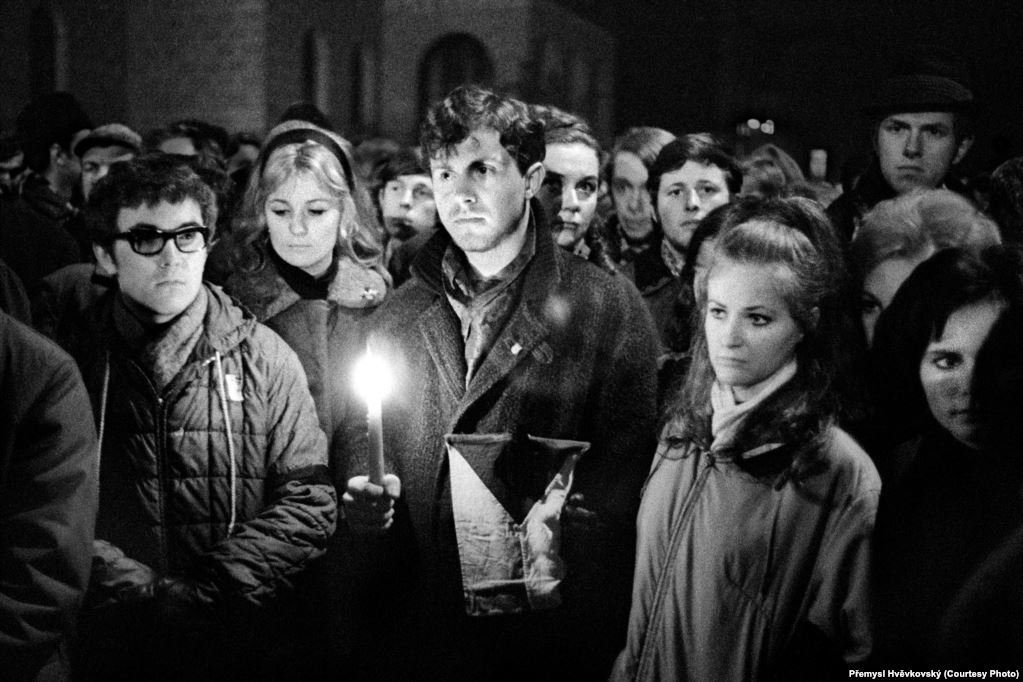
Mourners mark Palach’s funeral.
-
NEWSLETTER
Subscribe for our daily news





